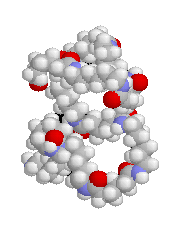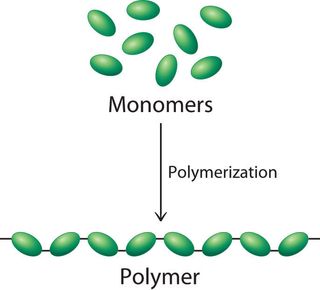Discovering the Varied Applications and Advantages of Polymers in Different Industries
Polymers, with their diverse variety of properties and functionalities, have actually ended up being important in various sectors, each reaping one-of-a-kind benefits from their application. From improving security and performance in the automobile market to revolutionizing clinical devices in the healthcare sector, polymers play an essential role.
Automotive Market Applications
Polymers play a crucial function in enhancing the performance and resilience of numerous components within the vehicle sector. These functional materials are extensively made use of in the manufacturing of different components, varying from interior parts to under-the-hood applications. One prominent use polymers in the auto industry is in the manufacturing of light-weight components. By changing typical metal get rid of polymer-based choices, automobiles can achieve enhanced gas performance without compromising on stamina or security.

Health Care Sector Benefits
In various health care applications, the benefits of using polymers are extensively identified for their varied series of beneficial properties. Polymers play an important function in the health care market because of their adaptability, biocompatibility, and cost-effectiveness. Among the main benefits of polymers in health care is their capability to be tailored to particular demands, such as flexibility, sturdiness, and biodegradability, making them optimal for a wide range of medical applications.
Polymer-based products are thoroughly utilized in medical devices, such as catheters, implants, prosthetics, and drug distribution systems, as a result of their biocompatibility and capability to imitate natural tissues. These materials can reduce the threat of sensitive reactions or beings rejected, enhancing patient safety and end results. In addition, polymers are lightweight, making them suitable for wearable clinical gadgets and making certain individual comfort.
Furthermore, polymers make it possible for the development of cutting-edge treatment approaches, such as hydrogels for tissue engineering and nanocomposites for targeted medication distribution. Their simplicity of processing and sterilization makes them vital for preserving high criteria of hygiene in medical care settings. In general, the varied advantages of polymers contribute dramatically to developments in clinical technology and individual treatment.
Environmental Benefits of Polymers

In addition, polymers can contribute to energy cost savings as a result of their light-weight nature. In sectors such as transport, light-weight polymer materials can site link help decrease fuel usage and greenhouse gas discharges. Furthermore, polymers can make it possible for the growth of energy-efficient products such as insulation products that improve power conservation in structures.
Moreover, polymers play an important function in decreasing water air pollution. For instance, the usage of polymer-based purification systems can properly get rid of toxins and impurities from wastewater, guarding water sources and ecosystems. Overall, the ecological benefits of polymers make them beneficial assets in advertising sustainability and eco-friendly techniques throughout different industries.
Polymers in Electronics and Technology
Considering the raising need for ingenious and sustainable remedies in contemporary industries, the integration of innovative polymer innovations in the realm of electronic devices and innovation has arised as a critical technique for driving efficiency and efficiency. Polymers have transformed the electronic devices market by enabling the manufacturing of lighter, more versatile, and long lasting digital devices. From smartphones to clinical tools, polymers play a crucial duty in enhancing item design and performance.
One significant advantage of polymers in electronic devices is their protecting residential properties, which help shield delicate electronic parts from environmental aspects and electrical disturbance. Furthermore, polymers are essential in the advancement of adaptable displays, wearable modern technology, and printed electronic devices, providing countless possibilities for producing clever and interconnected devices.
Moreover, the use of polymers in electronic packaging has caused innovations in miniaturization and thermal management, enhancing the total efficiency and integrity of digital systems. As technology remains to progress, the convenience and adaptability of polymers will definitely drive better innovation in the electronics market, forming the future of innovation.
Duty of Polymers in Building And Construction and Infrastructure
Polymers offer numerous benefits in the construction industry due to their versatility, durability, and check my source cost-effectiveness. One vital function of polymers in building is their usage in layers and sealers, offering protection versus environmental factors such as dampness, UV radiation, and rust.
Moreover, polymers play a crucial duty in sustainable construction methods by allowing the growth of energy-efficient structures. Shielding materials made from polymers aid control indoor temperature levels, decreasing the demand for heating and cooling down systems and discover this info here eventually lowering power usage. The usage of polymer-based composites in facilities tasks such as bridges and roads improves their longevity and lowers maintenance expenses. Overall, the unification of polymers in construction and infrastructure displays their significant effect on contemporary design techniques.
Conclusion
In conclusion, polymers play an important role in various industries such as vehicle, healthcare, environmental, electronics, and building. From improving fuel performance in automobiles to improving medical tools, polymers use various advantages.